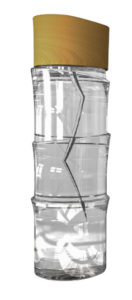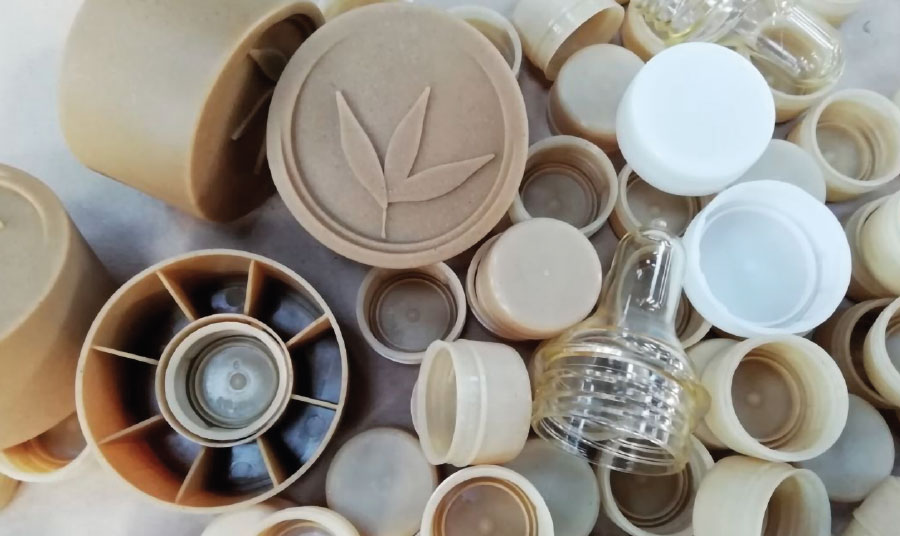Meeting with Béatrice Clément, sales and communication manager of Lyspackaging.
Fabien Humbert: What are the links between Lyspackaging and rum?
Béatrice Clément:We produce bottles and corks from the last juice of molasses and bagasse. These are raw materials that are very abundant in the sugar and rum industry and that are rarely valued. I have already seen in Africa the last juice being used to glue the soil so that it does not fly.
Why did you choose sugar cane as raw material?
We can use beet or corn but our founder Nicolas Moufflet preferred sugar cane because corn comes from the USA where they use GMOs. Our sugar cane comes from India and Indonesia, not from Brazil. These are old plantations, cooperatives of small owners, and 
Do you also buy your cane in France?
The DOM islands would like us to buy their cane because they sometimes have surpluses. They are obliged to burn the material and would like to valorize it differently. The problem is that there is no plant polymerization on these islands. Today, this makes sourcing in the West Indies difficult.
How is sugarcane transformed into bottles?
The polymerization plants transform the raw material into grains that look like plastic. These grains are improved in the laboratory so that they can be transformed into bottles and stoppers in our plant based in Charente-Maritime. Our first customers were premium fruit juice producers looking for consistency between healthy and fresh content and a bio-based container. Now, the industry is interested in our products.
Are your products recyclable?
Our material is not recyclable but it can be industrially composted. It has the EN 13432 standard which allows it to meet a certain number of criteria of non-toxicity and degradation within a certain period of time.
For the moment, our products are not usable in composting by the private individuals because it requires a more active and hot compost than what they can generally provide. Our products start to deform at 45°C and degrade at 60 or 70°C.
Are rum producers interested in your bottles?
Most of the islands, including our overseas departments, do not have a plastic processing and recycling system. So, in Reunion Island for example, the plastics are sent in containers to South Africa. This is why they are interested in our products that can be degraded locally into compost.
Then, if we don’t have any customers in the rum industry yet, we have contacts with producers. Our bottles can accommodate spirits without the content suffering. The life of such a bottle is about one year if it is kept in stable conditions, where it is not too hot or humid. On the other hand, for the moment, wine or beer do not keep well in our bottles.

